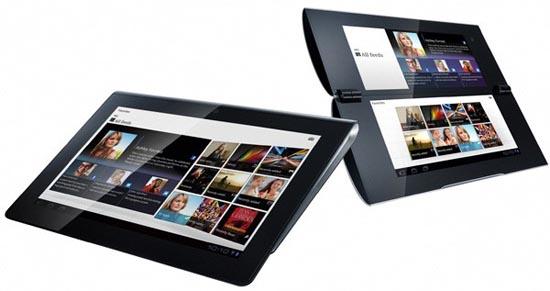
During Apple’s quarterly earnings call, there was made mention of the belief that the tablet market would out-pace the PC market in the near future. After that I began to see people agree with that notion, or state that the tablet market is already outpacing the desktop market. I’m not going to argue that last point, because while I don’t know someone who doesn’t own a desktop computer, they rarely (if ever) use it. The tablet market has indeed encroached upon all things home computer, and the estimations that the tablet market will outrun the PC market are probably dead-on. But, tablets aren’t all that effective at everything quite yet, and people are basically using them as a content consuming device, rather than anything else.
But, that will likely change with the development of better applications, more powerful tablets (which hopefully doesn’t lead to more expensive tables, but it probably will), and a harder focus on using a tablet to actually get work done (for the majority of people out there, not the minority who can “squeeze” their work onto a tablet). And while the tablet market will continue to take off, I am wondering if the PC market will take notice and start adopting features of a tablet into things like a notebook or laptop.
Specifically, a tablet can’t get everything done that a full-fledged computer can, even if it is in a laptop form-factor. And while I imagine that plenty of the Android tablets coming down the slate this year will be impressive in their own right, and that Apple’s next iPad device will rock the socks off plenty of people out there, I really doubt that their position as a media consuming device will change overnight. Because of that, the laptop and notebook market out there, and the fledgling “ultrabook” market that is trying desperately to take off, still has plenty of time to integrate some new and exciting features, and draw potential tablet customers their way.
One of those ways can be to integrate a touch-based interaction. Right now, a laptop is all about the physical keys and touchpad. And while that’s great, and it gets the job done, it’s tried-and-true and getting long in the tooth. People want a more touch-focused experience, a way to interact with their devices in a whole new way. Even if it is just for a short time, and not the whole way to use a device, having that little bit of an “extra” goes a long way. Or, at least, it can if it is used the right way.
So would you be willing to use a laptop with a dual-screen design? We’ve seen the idea used in smartphones, and we’ve even seen companies use the concept in tablets. The Kyocera Echo (the dual-screen smartphone) wasn’t the big hit that Kyocera or Sprint probably thought it could be, but the effort was there and that has to count for something. The same could probably be said of Sony’s Tablet P, which is the dual-screen tablet endeavor. But, while the dual-screen idea is a great one, it’s hindered by the power (or lack there of) inside the machine, and neither the Echo nor the Tablet P are necessarily powerhouses on their own feet.
But a laptop, that’s an entirely different story. We know that manufacturers can pack plenty of processing and graphical power in a tablet, because there is more room to work with. I’m sure that a dual-screen laptop would have to make some alterations in design with the internal components due to the lower touchscreen, but I have no doubt in my mind that it could be figured out to make a significantly powerful, and therefore capable, dual-screen laptop.
But would it be adopted? Would a manufacturer like HP take a risk in creating a device like that? If they could figure out a great way to make the touchscreen keyboard work just as well as a physical keyboard, along with some pretty intuitive and interesting ways to interact with the laptop, I think there’s a chance. But, I think the one problem that would arise pretty quickly is the price, which I imagine would be pretty high for something like that.
The price aside, what would you think of a dual-screen laptop? The idea of a tablet, the form factor of a laptop along with the processing power of a full-fledged computer. Would you use it?